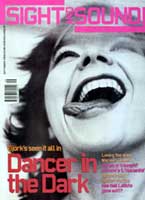Primary navigation

Spain 1998
Reviewed by Paul Julian Smith
Our synopses give away the plot in full, including surprise twists.
Galicia, Spain, 1935. Moncho, a timid, asthmatic eight-year-old, is about to start school but fears the teacher will flog him. After a traumatic first day, he runs away and is found at night by a search party. Discovering the teacher, Don Gregorio, is a kindly and enlightened pedagogue, Moncho embraces learning. Encouraged by his new friend Roque, Moncho spies on an unmarried woman, Carmiña, who has sex with her lover O'Lis in the presence of her dog. Later, O'Lis kills the interfering hound.
Andrés, Moncho's 15-year-old brother, is making little progress in his attempt to learn the saxophone. But after falling for a mute Chinese girl in a neighbouring village, he becomes a virtuoso on the instrument. On a trip to the country, Don Gregorio explains the complexity and beauty of the butterfly's tongue to his pupils. This idyllic time is interrupted by the outbreak of the Spanish civil war in July, 1936. Moncho's devout mother makes her socialist husband renege on his principles. As the leftist Don Gregorio is led away to execution, Moncho and his family, fearful for their own safety, shout insults at him.
Butterfly's Tongue is a modest and unassuming picture which offers all of the pleasures of the period genre. The lush locations of Galicia, captured by Javier Salmones' luminous cinematography, glow green and gold, set-piece celebrations such as local fiestas display a range of handsome costumes and the performances by veterans and newcomers alike are solid and professional. More importantly, Rafael Azcona has crafted a seamless script from three short stories by Manuel Riva, and director José Luis Cuerda paces the plot perfectly. At 95 minutes, it doesn't outstay its welcome.
This pleasing aesthetic gloss, however, is precisely what makes Butterfly's Tongue so problematic. While the credits play over authentic photographs of Galician peasants from the period, few non-Spanish viewers are likely to guess that this was the poorest of Spanish regions. Poverty has rarely seemed so picturesque. And while the narrative takes place in the year preceding the Spanish civil war, historical analysis is undercut by a brand of whimsy often associated with misty, Celtic Galicia. At a village festival (with art design based somewhat incongruously on Goya's paintings), for instance, teenager Andrés suddenly becomes a saxophone virtuoso, inspired by his love for a Chinese mute. Inversely Spanish audiences must have felt the parallels between Fernando Fernán-Gómez's fictional schoolteacher, Don Gregorio, and Antonio Machado, real-life schoolteacher and civil war exile, all too obvious. Not only does Don Gregorio share biographical details with this well known historical figure, he even has his students transcribe Machado's poems for dictation.
For all these heavy-handed references to Spanish history, the film is more weighed down by cinematic citations. Butterfly's Tongue's coming-of-age scenario was recently (and more successfully) exploited by Montxo Barrios Armendariz's Secrets of the Heart, a critical and box-office hit in Spain. And Fernán-Gómez, the ubiquitous grumpy old man of Spanish cinema, here seems to be reprising one of his most memorable roles: the father to another troubled child protagonist in Víctor Erice's El espiritu de la colmena/The Spirit of the Beehive. (A torch-lit search for a child missing in a forest also brings to mind a similar scene in Erice's 1973 film.) Unfortunately, such comparisons aren't to Butterfly's Tongue's credit. When not stirring memories of Erice's enduring hymn to childhood and haunting investigation into the links between fantasy and history, Cuerda even seems to cite his own past work. In a long and uneven career, he remains best known for another ensemble piece of Galician whimsy shot in the same location, El bosque animado/The Animated Forest (1987).
Interestingly, Butterfly's Tongue boasts the involvement of two seemingly opposed figures in contemporary Spanish cinema: Rafael Azcona and Alejandro Amenábar. Azcona, scriptwriter and director of some of the most corrosive comedies of the Franco era, has long since succumbed to the kind of soft-focus nostalgia which infuses Cuerda's film. Amenábar, who composed the film's music, meanwhile, is the emblematic director of Spain's most urgent contemporary cinema. His urban thrillers Tesis and Abre los ojos/Open Your Eyes (both shown in the UK) are among Spain's highest grossing features. The biggest mystery of Butterfly's Tongue - you're left thinking - lies not in its Celtic whimsy but in how its director Cuerda could have ever produced Amenábar's metropolitan masterpieces.